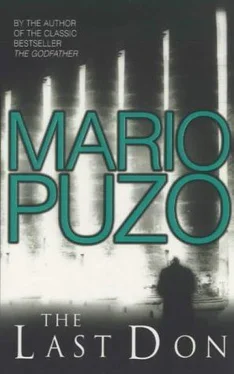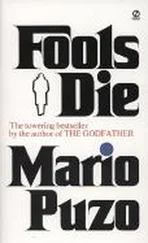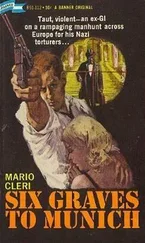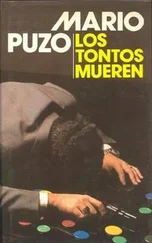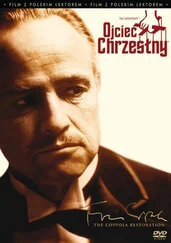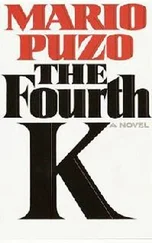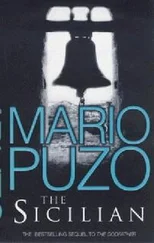Athena Aquitane's refusal to complete a film in progress was a problem serious enough to command even Marrion's attention. Messalina, a hundred-million-dollar production, the studio Locomotive, with video, TV, cable and foreign rights presold to cover the cost, was a golden treasure that was about to sink like an old Spanish galleon, never to be retrieved.
And there was Athena herself. At the age of thirty, a great star, already signed to do another blockbuster for LoddStone. A true Talent, of which there was nothing more valuable. Marrion adored Talent.
But Talent was like dynamite, it could be dangerous and you had to control it. You did that with love, with cajolery in its most abject form, you showered it with worldly goods. You became a father, a mother, a brother, a sister, even a lover. No sacrifice was too great. But there came a time when you could not be weak, when indeed you must be merciless.
So now in this room with Marrion were the people to enforce his will. Bobby Bantz, Skippy Deere, Melo Stuart, and Dita Tommey.
Eli Marrion, facing them in this familiar conference room, twenty million dollars worth of paintings, tables, chairs, and rugs, the crystal goblets and jugs totaling at least a half million more, could feel his bones crumbling within. Each day he was astonished how difficult it was to present himself to the world as the all-powerful figure he was presumed to be.
Mornings were no longer refreshing, it was fatiguing to shave, to knot his tie, to button the buttons on his shirt. More dangerous was the mental weakness. This took the form of pity for people less powerful than himself. Now he was using Bobby Bantz more, giving him more power. After all, the man was thirty years younger and was his closest friend, loyal to him for so long.
Bantz was president and chief executive officer of the Studio. For over thirty years, Bantz had been Marrion's hatchet man, and through the years they had become very close, like father and son, as it is said. They suited each other. After the age of seventy, Marrion had become too tenderhearted to do the things that absolutely had to be done.
It was Bantz who took over from movie directors after their artistic cut and made their films acceptable to audiences. It was Bantz who disputed percentages of directors, stars, and writers and made them either go to court to collect or settle for somewhat less. It was Bantz who negotiated very tough contracts with Talent. Especially writers.
Bantz refused to give even the standard lip service to writers. It was true you needed a script to start, but Bantz believed that you lived and died by casting. Star power. Directors were important because they could steal you blind. Producers, no slouches when it came to thievery, were necessary for the manic energy that started a movie.
But writers? All they had to do was make that initial tracing on blank white paper. You hired another dozen to work it over. Then the producer shaped the plot. The director invented Business (sometimes a whole new picture), and then the stars came up with inspired bits of dialogue. Then there was the Creative Staff of the Studio who, in long, carefully thought out memos, gave writers insights, plot ideas, and wish lists. Bantz had seen many a million-dollar script from a big-shot screenwriter paid a million dollars, only to find when the picture was finished it contained not a single plot incident or word of dialogue of the writer's. Sure, Eli had a soft spot for writers, but that was because they were so easy to screw on their contracts.
Marrion and Bantz had traveled the world together selling movies to film festivals and market centers, to London and Paris and Cannes, to Tokyo and Singapore. They had decided the fate of young artists. They had ruled an empire together, as Emperor and chief vassal.
Eli Marrion and Bobby Bantz agreed that Talent, those who wrote, acted in, and directed movies, were the most ungrateful people in the world. Oh, those hopeful pure artists could be so engaging, so grateful for their chance, so accommodating when they were fighting their way up, but how they could change after achieving fame. Honey-making bees turned into angry hornets. It was only natural that Marrion and Bantz kept a staff of twenty lawyers to throw a net over them.
Why were they always so much trouble? So unhappy? There was no doubt about it, people who pursued money rather than art had longer careers, got more pleasure in life, were much better and more socially valuable people than those artists who tried to show the divine spark in human beings. Too bad you couldn't make a movie about that. That money was more healing than art and love. But the public would never buy it.
Bobby Bantz had gathered them all up from the festival going on outside the mansion. The only Talent there was the director of Messalina, a woman named Dita Tommey, in the A class and known as the best with female stars, which in Hollywood today meant not homosexual but feminist. The fact that she was also a lesbian was irrelevant to all these men in the conference room. Dita Tommey brought in her pictures under budget, her pictures made money, and her liaisons with females caused far less trouble on a picture than a male director screwing his actresses did. Lesbian lovers of the famous were docile.
Eli Marrion sat at the head of the conference table and let Bantz lead the discussion.
Bantz said, «Dita, tell us exactly how we stand on the picture and what your thoughts are on solving the situation. Hell, I don't even understand the problem.»
Tommey was short and very compact and always spoke to the point. She said, «Athena is scared to death. She is not coming back to work unless you geniuses come up with something that can erase that fear. If she doesn't come back, you guys are out fifty million bucks. The picture cannot be finished without her.» She paused for a moment. «I've shot around her in the past week, so I've saved you money there.»
«This fucking picture,» Bantz said. «I never wanted to make it.»
This provoked other men in the room; the producer, Skippy Deere, said, «Fuck you, Bobby,» and Melo Stuart, Athena Aquitane's agent, said, «Bullshit.»
In truth, Messalina had been enthusiastically supported by everyone. It had received one of the easiest «green lights» in history.
Messalina told the story of the Roman Empire under the Emperor Claudius from a feminist point of view. History, written by males, painted the Empress Messalina as a corrupt and murderous harlot, who one night took on the whole population of Rome in sexual debauch. But in the movie creating her life almost two thousand years later, she was revealed as a tragic heroine, an Antigone, another Medea. A woman who, using the only weapons available to her, tried to change a world in which men were so dominant that they treated the female sex, half the human race, as if they were slaves.
It was a great concept — rampant sex acts in full color and a highly relevant and popular theme — but it needed a perfect package to make the whole thing credible. First Claudia De Lena wrote a script that was witty and had a strong story line. Dita Tommey as director was a pragmatic and politically correct choice. She had a dry intelligence and was a proven director. Athena Aquitane was perfect as Messalina and had completely dominated the picture so far. She had the beauty of face and body, and the genius of her acting made everything plausible. More important, she was one of the three female Bankable Stars in the world. Claudia, with her own offbeat genius, had even given her a scene in which Messalina, seduced by the growing Christian legends, saved martyrs from the sure death of the amphitheater. When Tommey read the scene she said to Claudia, «Hey, there's a limit.»
Claudia grinned at her and said, «Not in the movies.»
Читать дальше
